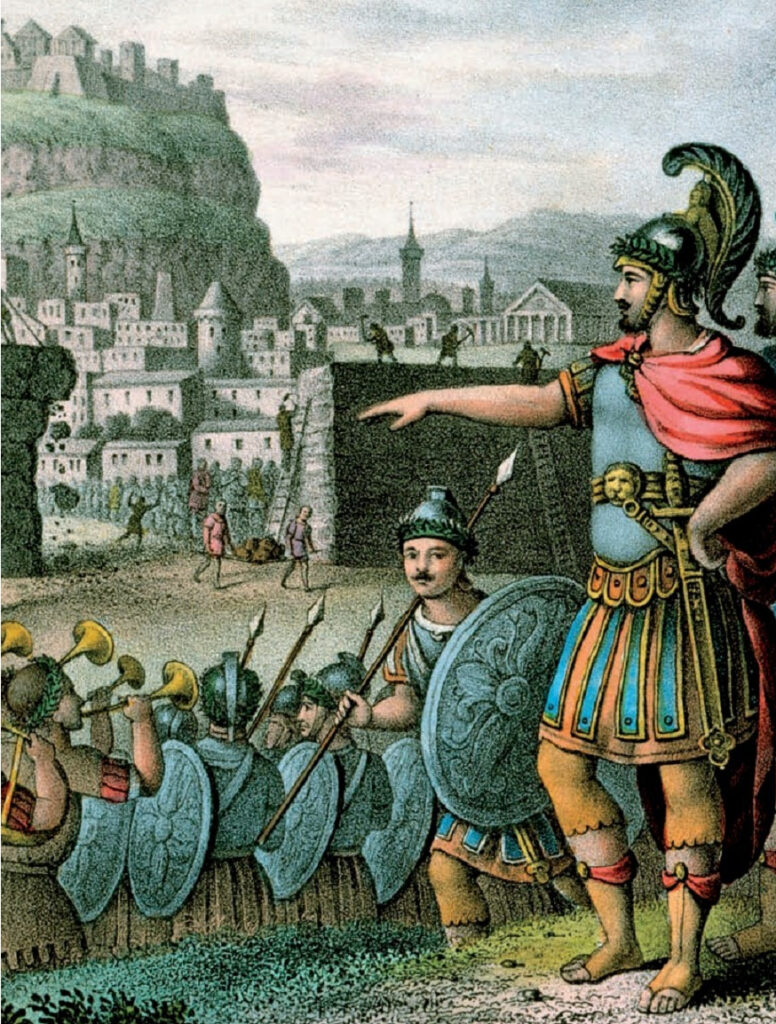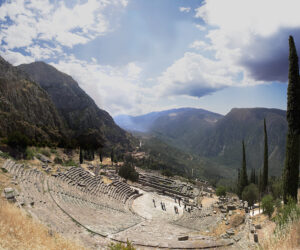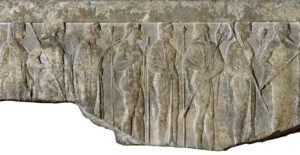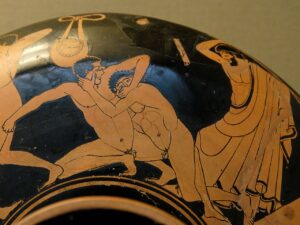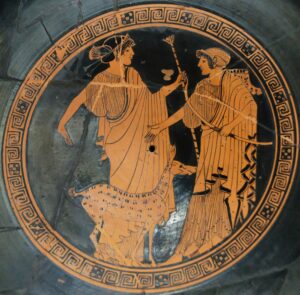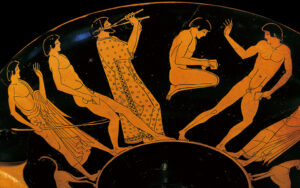The Peloponnesian War was one of the most significant events in ancient Greek history, lasting from 431 BCE to 404 BCE. This major conflict was fought between two of the most powerful city-states in ancient Greece at the time: Athens and Sparta. The war marked the decline of Athens as a major power in Greece and the rise of Sparta as the dominant city-state.
Causes of the Peloponnesian War in Ancient Greece
One of the primary causes of the Peloponnesian War was the growing tension between Athens and the Peloponnesian League, a group of city-states led by Sparta. Athens had emerged as the dominant naval power in Greece following the Greco-Persian Wars, and its increasing power and influence was seen as a threat by the members of the Peloponnesian League. Tensions between the two sides grew over time, eventually leading to the outbreak of the Peloponnesian War.
Another key factor that contributed to the outbreak of the Peloponnesian War was Athens’ expansionist policies. Athens had established an empire that stretched across much of the Aegean and Ionian seas, and its imperial ambitions were seen as a threat by many of the city-states in Greece. The expansionist policies of Athens also put a strain on its relationships with its allies and made it more difficult for the city-state to maintain peace with its neighbors.
Finally, the Peloponnesian War was also caused by differences in political systems between Athens and Sparta. Athens was a democracy, while Sparta was an oligarchy. These differing political systems led to conflicting views on the role of the state and the rights of citizens, and contributed to the tensions between the two city-states.

Main Combatants in the Peloponnesian War
The main combatants in the Peloponnesian War were Athens and the Peloponnesian League, led by Sparta. Other city-states and powers in Greece also became involved, including Corinth, Thebes, and Persia.
Important people in the conflict included Pericles, a prominent Athenian statesman, and Lysander, a Spartan general who played a crucial role in the war’s outcome. Pericles was known for his strategic vision and leadership, while Lysander was celebrated for his military prowess and tactical acumen.
Major Events of the Peloponnesian War
The Peloponnesian War of ancient Greece was fought primarily in the Peloponnese and Attica, but also involved battles in other parts of Greece, as well as Sicily and Thrace. Throughout the course of the war, there were numerous battles and skirmishes fought between Athens and Sparta. Some of the most significant battles of the war include the Battle of Potidaea, the Battle of Delium, and the Battle of Amphipolis.
The war was fought in three phases. In the first phase (431-421 BC), Athens was initially victorious, but a plague outbreak weakened the Athenians and allowed the Spartans to recover. In the second phase (415-413 BC), Athens launched a failed expedition against Sicily, which weakened their power even further. In the final phase (413-404 BC), the Spartans were able to defeat Athens, who was forced to surrender and accept the terms of the Peace of Nicias.
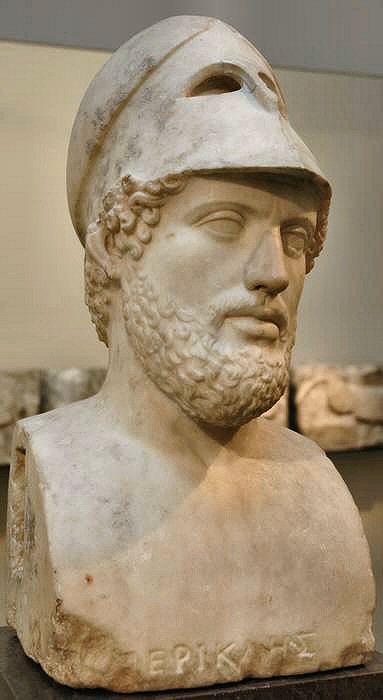
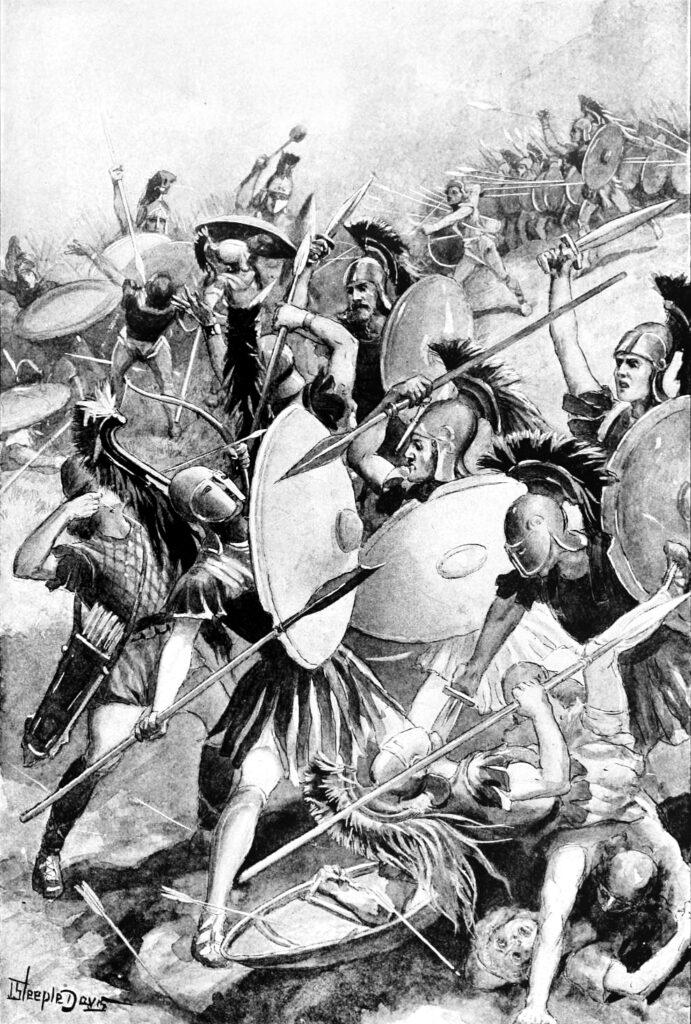
Significance of the Peloponnesian War in Ancient Greece
The Peloponnesian War had a significant impact on the course of ancient Greek history and had long-lasting consequences for the region. Athens lost its empire and its navy, and its walls were dismantled. Sparta became the dominant power in Greece, but its power was short-lived as it was soon challenged by Thebes and later, Macedonia. The war also weakened the city-states of Greece, making them more vulnerable to conquest by outside powers.
The Peloponnesian War is also notable for its use of unconventional warfare tactics, such as the use of irregular forces and guerrilla tactics. It is also remembered for the role played by the philosopher Socrates, who served as a soldier in the war and was later accused of corrupting the youth of Athens.
The Peloponnesian War is considered to be one of the most important events in ancient Greek history. It had a profound impact on the development of Greek society and politics, and its legacy can be seen in the works of ancient Greek historians such as Thucydides, who wrote a detailed account of the war. The war also had a significant impact on the development of Western military strategy and tactics.
Overall, the Peloponnesian War was a major event in the history of ancient Greece and had significant consequences for the region and its people. It is still studied and remembered today as an important moment in the history of warfare and politics.

